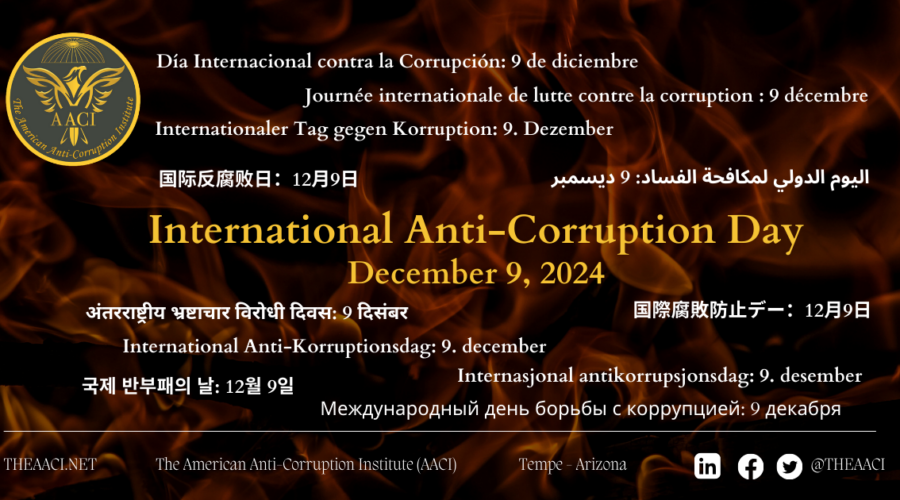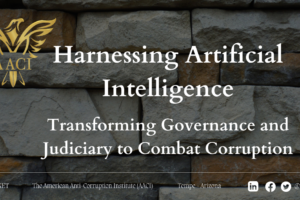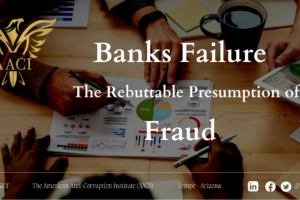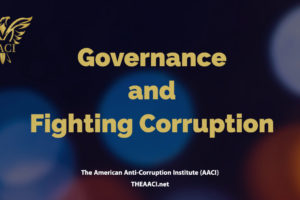Technical Staff
December 4, 2024
As the world observes International Anti-Corruption Day on December 9, it is essential to reflect on the global effort to combat the “cancer of nations”—corruption. While the day serves as an important symbol of international commitment to the fight against corruption, it is also a reminder that much work remains to be done. Governments, institutions, and individuals must move beyond ceremonial observances and focus on meaningful, measurable action.
Governments Must Lead by Example
Governments bear the primary responsibility for leading the fight against corruption. Their actions—or lack thereof—have profound ripple effects on local and international communities. Yet, regrettably, many governments continue to treat this solemn day as a superficial event, devoid of substance.
Few report their anti-corruption achievements to their citizens or the international community. Transparency and accountability must become non-negotiable elements of governance. Where governments fail to deliver, they must be held accountable locally and, when necessary, internationally. The international community must adopt robust measures to ensure that those responsible for corruption are not shielded by jurisdictional boundaries.
The Necessity of Mapping and Quantifying Corruption Risks
Fighting corruption requires a proactive approach. Corruption risks must be systematically identified, mapped, and quantified to develop effective prevention and mitigation strategies. A mere rhetorical commitment to combating corruption is inadequate. Nations must embrace evidence-based policies, supported by actionable data, to tackle this pervasive issue.
A Dynamic and Evolving Field
The anti-corruption field is far from static. Legal frameworks are evolving to address emerging challenges. On December 22, 2023, U.S. President Joe Biden signed the 2024 National Defense Authorization Act (NDAA), which expands the U.S. Department of Justice’s ability to combat foreign bribery. For the first time, it criminalizes the “demand” side of foreign bribery, making it illegal for foreign officials to solicit or accept bribes from U.S. entities or within U.S. jurisdiction [1].
This legislative advancement sets a new standard for global anti-corruption efforts, demonstrating the importance of holding all parties accountable, not just the supply side of bribery.
International Frameworks and Commitments
The United Nations Convention Against Corruption (UNCAC), the OECD Anti-Bribery Convention, and initiatives like the French Anti-Corruption Agency’s Corporate Reporting Sustainability Directive [2] highlight the international community’s commitment to combating corruption. These frameworks provide invaluable tools to curb corruption and foster a culture of integrity. However, their success depends on genuine implementation, not symbolic ratification.
No Safe Havens for Corruption
Corruption undermines economic stability, erodes trust in institutions, and perpetuates social inequalities. The international community, particularly organizations like the United Nations and the G20, must take stronger action to deny safe havens to corrupt individuals. Financial systems and legal frameworks must work in concert to prevent the illicit flow of money and prosecute those who exploit public trust for personal gain.
A Call for Action
International Anti-Corruption Day must ignite real reform and accountability, not mere ceremony. Governments must lead by delivering measurable results, embracing innovation, and transparently engaging stakeholders.
Fighting corruption demands collective action, with governments at the forefront. Together, through unwavering commitment, we can build a world rooted in integrity, transparency, and the rule of law [3] [4]—a lasting legacy of justice and accountability.
Notes and References
[1] “FOREIGN EXTORTION PREVENTION TECHNICAL CORRECTIONS ACT: PUBLIC LAW 118–78—JULY 30, 2024.” n.d. Congress.Gov. Accessed December 3, 2024. https://www.congress.gov/118/plaws/publ78/PLAW-118publ78.pdf.
[2] Read more on https://www.agence-francaise-anticorruption.gouv.fr/fr/entreprise-assujettie-directive-csrd-details-sur-lapproche-pratique-des-indicateurs-anticorruption
[3]Read more about the Ten Principles of Fighting Corruption promulgated by The American Anti-Corruption Institute (AACI) https://www.theaaci.net/Principles-of-Fighting-Corruption
[4] Read more about the Standards on Fighting Corruption https://www.theaaci.net/Standards-on-Fighting-Corruption-(SFCs)











































